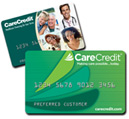Dr. Jo Ann Daniels & Associates
17945 State Road 54, Lutz, FL 33558
813-926-1126
Dr. Jo Ann Daniels & Associates
17945 State Road 54, Lutz, FL 33558 813-926-1126
www.CentralPascoVetCare.com
Hurricane Season
is Here !
Make a Plan Now
for You and Your Family of Pets
Are you and your pets
prepared for a hurricane?
After volunteering at Hurricane Disaster Relief Sites,
Dr. Jo Ann Daniels has compiled a list of advice and items to
gather to help you prepare for storms and evacuation.
Health Checks and Important Documents
Be sure your pet has a current physical exam and is updated
with preventative care such as vaccines, heartworm testing,
and intestinal parasite examination.
Keep your pets paperwork, proof of vaccines and
medical records in a locking plastic bag. You will
need these papers for boarding facilities or hotels.
Print a recent picture of your pet to keep with your documents.
Identification
All pets should have a collar or harness with
proper identification. ID tags should include your
name, address, and phone number. Make sure
to include your correct address as phone lines may
not work after the storm.
Have your pet Microchipped. A microchip is a tiny information
storing chip that is placed under the skin of your pet. Animal shelters and humane societies can reunite you and your lost pet using the information provided from your microchip registration. Discuss this procedure with our health care team. Dr. Daniels
scanned over 300 lost pets in Punta Gorda, FL after Hurricane
Charley destroyed homes.... only 1 had a microchip. Microchip
your pets and register them as soon as possible.
If your pet already has a microchip, call and verify that your personal information is correct. Provide alternate contacts such as cell phone numbers and phone numbers of family members that do not live in the area.
Supplies
Refill any prescription medications to have at least a one month supply. Store the
prescription bottles or packages in locking plastic bags.
Stock at least ONE MONTH of food and bottled water for each pet. Place dry food in a waterproof tubberware and store away from areas prone to water damage. If your pet eats canned food, purchase a manual can opener so cans can be opened even if the power is off.
Obtain a carrier or crate for each size pet to
ease with evacuation safety.
Folding crates can be used
to help contain pets after the
storm if you have structural
damage to the outside of
your home. The style shown
allow a breeze to flow through
when your a/c is not working.
Get the largest size you can, so
food bowls, water bowls, and a
litter box can fit inside. When
you have a wall missing from your home, this crate will keep your
pet safe and contained.
Purchase a collar/harness and leash for each pet for safety while
traveling. Again, identification tags should be on each pet.
Make or purchase a first aid kit for your pet containing:
Digital thermometer with lubricant
Eye irrigation solution and cotton balls
Triple antibiotic ointment for animals
Anti-histamines
*Remember, Human medications for pain and fever are toxic to pets !
Arrangements/Planning
Find out in advance what evacuation zone you live in. Make
inquires to hotels, pet boarding facilities and family members
inland to make arrangements for somewhere to stay.
Always take your pets with you, never leave them unattended.
If you have to board your pet, check that the facilities are not in
evacuation zones or flood zones. They too will have to evacuate
if a storm is upgraded in category.
Evacuate early so your pets do not have a prolonged stressful
car ride due to traffic delays.
Remember pets are not permitted in most public evacuation
shelters. A limited number of shelters accept pets with prior
application forms completed and approved by the county.
If it is too late to evacuate, find the innermost room in your home
to protect you and your family of pets from shattering windows and debris.
After the storm has passed
Keep pets contained to protect them from glass, debris and 
other loose animals.
Animals are very prone to heat exhaustion and heat stroke,
keep them indoors in air conditioning (if you have power) or a
shady, well ventilated area. Provide plenty of water. You may
have to temporarily board your pets until your power is restored
to keep them in a cool, protected area.
How you can help
Animal rescue organizations are overwhelmed with rescue efforts after natural disasters. Local animal shelters need volunteers and donations of food, bottled water, blankets, leashes, collars, carriers
and first aid supplies. When storms have hit Florida, Dr. Daniels has volunteered at disaster relief sites to help injured and lost animals.
Your donations and the generosity of volunteers made these efforts
possible. Our hospital serves as a DONATION STATION for all
supplies except food. These supplies are distributed to those in
need, and disaster supplies are stored to help injured animals after
disasters strike.
For more information, visit these links
Fl. Div. of Emergency Management http://www.floridadisaster.org/
National Hurricane Center http://www.nhc.noaa.gov/
Make a disaster plan for you and your family today !
Here in Florida, the University of Florida VETS Team responds to
Disasters. Visit their website for futher information and how you can donate to purchase relief supplies and equipment.

























